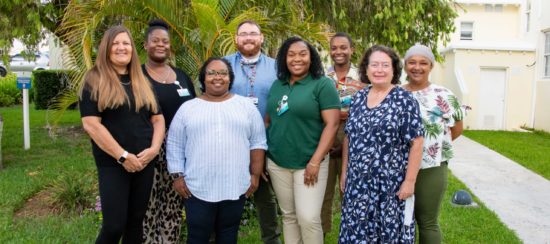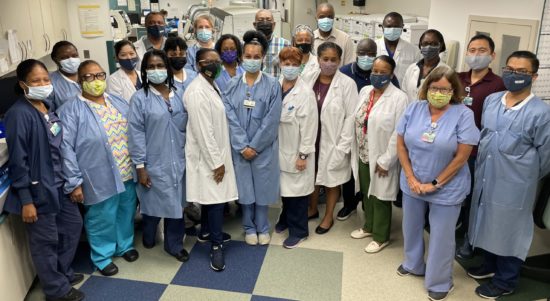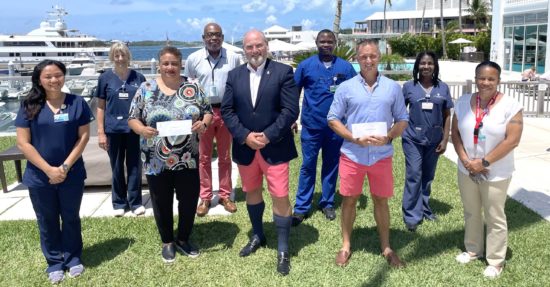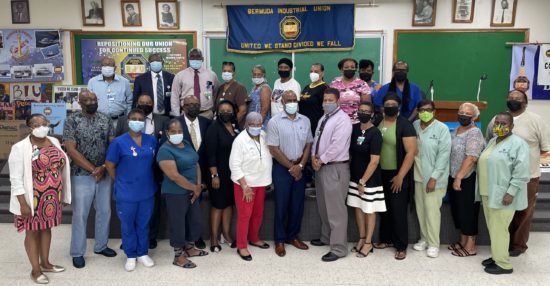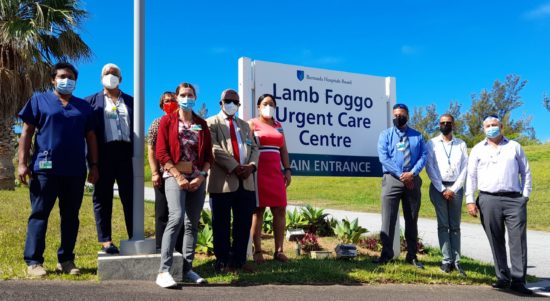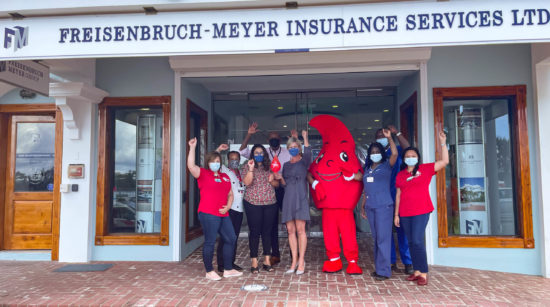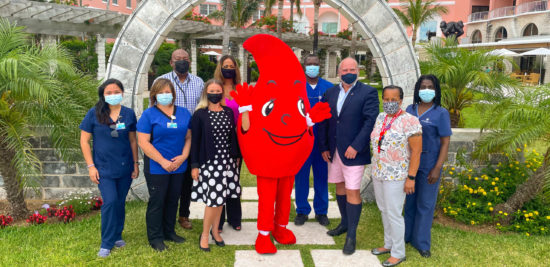BHB cautiously opens up to more visitors
Thursday 22 July 2021: Bermuda Hospitals Board today announces that it is updating visiting restrictions, effective immediately, in light of the low prevalence of COVID-19 in the community at this time.
Dr Wesley Miller, Chief of Staff, comments: “We are pleased it is safe enough to allow more visitation at this time. We remain prepared, however. The last surge of cases was so large and fast, it was extremely challenging for us. At its peak we had 45 cases in the hospital, and about 120 COVID-19 patients over two months. Thankfully we purchased an additional oxidiser last year, otherwise we would have run out of oxygen this year. This is a sobering reminder of how quickly things can escalate, especially with the Delta variant which is 60% more infectious than the variant that caused our last dramatic surge. So we look forward to welcoming more visitors, but remain cautious.”
Judy Richardson, Chief of Nursing, comments: “We are really happy that patients, residents and clients can see more of their loved ones, but we are keeping a close eye on the number of cases and hospitalisations. While prevalence is low, we can maintain a more open visiting policy, though all visitors will still have a temperature and mask check before being able to enter our facilities. Our position will be reviewed if COVID-19 cases rise.”
Vice President of Acute and Ambulatory, Norma Smith, comments: “Opening up to more visitors for our patients and residents is heart-warming for all of us working in the hospitals. We know what it means for someone in hospital to see their loved ones, and have been through what it is like when they can’t. Given the risks of the Delta variant, we just remind visitors to stay masked at all times, even when in patient rooms and be mindful of physical distance; this vigilance will help us maintain a more open visiting policy.”
The following requirements must be followed when visiting any BHB services:
- Visitors must pass a temperature and mask check at our entry screens before coming into a BHB facility
- Visitors must be masked at all times, including in patient rooms
- Visitors must maintain physical distancing at all times, including in patient rooms
- People who have symptoms of COVID-19 or any other infection will not be allowed to visit
- If someone has travelled, they should only visit after they have completed their post-travel testing requirements with all negative tests
- For infection control purposes, visitors will not be allowed to use patient bathrooms and will need to use public restrooms on each floor
- Overnight stays are allowed only in exceptional circumstances.
All current visiting requirements are listed below:
Acute care patients in the Acute Care Wing (Ace Barber, Ascendant Partner Re, Catlin Lindo), including those on isolation: visitors allowed between noon and 8pm. Masking and physical distance precautions must be followed in the room.
Acute care patients in the General Wing (Curtis Ward): as these rooms are smaller and have other patients in, acute care patients in the General Wing (Curtis Ward) can have one visitor at any one time between noon and 8pm.
Intensive Care Unit: Two designated support people allowed to visit for two hours between 10am and 2pm, or 4pm and 8pm. Visitors must be on the ICU visitors list.
Maternity:
- One designated support person may stay up to 8 hours after the birth
- The same designated support person can visit between noon and 8pm after the birth, but will be restricted to the patient’s room
- Doulas can attend the birth, and afterwards once a day between noon and 8pm
Acute Inpatient Care for Mid-Atlantic Wellness Institute services (adult, child and adolescent services):
- Pre-identified support people can visit for 30 minutes each day between noon and 6pm
- Support people should check in at the front desk
- One person can visit at any one time and visitation will be in a public space, such as a family conference room
Long Term Care (KEMH and MWI)/Agape House:
- MWI Long Term Care (Devon Lodge and Reid Ward): visiting between noon and 6pm. Visitors must stay masked and physically distant.
- KEMH Long Term Care (Cooper, Gordon, Perry Units)/Agape House: one visitor per patient for up to one hour between noon and 8pm, and no more than two visitors in a room at any given time. If a resident is isolated due to COVID-19 they cannot have visitors, but if isolated for any other reason they can.
Emergency Department and Lamb Foggo Urgent Care Centre:
- Patients can come with one companion to the Emergency Department or Lamb Foggo UCC – patients and visitors must remain masked and physically distant from other people waiting.
- Up to two companions may be allowed for:
- Minors (under 18)
- End of life cases
- Combative individuals
- Please note if someone dies in the ED or is brought to the hospital after passing away, only two people can visit at a time from the immediate family. There is not enough space to safely accommodate large viewings so we discourage mass attendance in the waiting room. Only three (3) family members will be accommodated in the family room at a time .

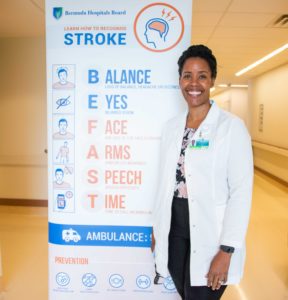 “This has immediate human impact,” said Medical Director of the BHB Primary Stroke Centre, Dr Francene Gayle. “It means more of our stroke patients than ever before are able to make full recoveries. Three months after having a stroke they are able to return to their pre-stroke functioning levels. This is so important for quality of life, and as 25% of those who had a stroke in 2020 in Bermuda were under the age of 60, these are often people with many years ahead of them.”
“This has immediate human impact,” said Medical Director of the BHB Primary Stroke Centre, Dr Francene Gayle. “It means more of our stroke patients than ever before are able to make full recoveries. Three months after having a stroke they are able to return to their pre-stroke functioning levels. This is so important for quality of life, and as 25% of those who had a stroke in 2020 in Bermuda were under the age of 60, these are often people with many years ahead of them.”